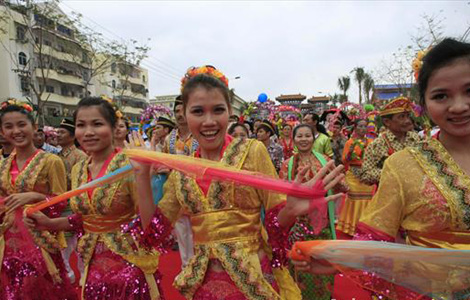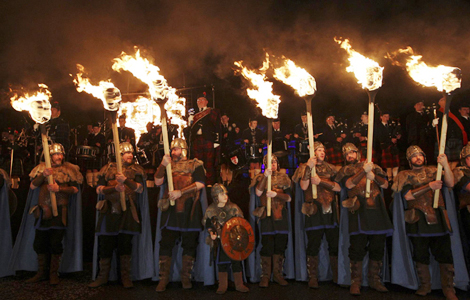US top Asia diplomat to visit Beijing
Updated: 2011-12-31 10:15
By Cheng Guangjin and Cui Haipei (China Daily)
|
|||||||||||
BEIJING - The United States will send its top diplomat for Asia to China on Tuesday for talks which will include developments in the Democratic People's Republic of Korea (DPRK), which analysts said will help stabilize the situation on the Korean Peninsula.
Kurt Campbell, US assistant secretary of state for East Asia and the Pacific, will visit Beijing, Seoul and Tokyo from Jan 3 to 7, the US State Department said on Thursday.
Campbell will be the most senior US official to visit the region since Kim Jong-il, leader of the DPRK, died on Dec 17.
The announcement said Campbell's meeting in Beijing will be "an important opportunity to continue to build a cooperative partnership with China on shared global challenges".
The purpose of Campbell's visit is to maintain close contact with China in order to avoid strategic misjudgments on the Korean Peninsula after Kim's death and discuss the prospects for the Six-Party Talks, said Gong Li, a professor of international strategic research at the Party School of the Central Committee of the Communist Party of China.
The Six-Party Talks, which involve the DPRK, the Republic of Korea (ROK), China, Japan, Russia and the US, have been stalled since the last session ended in late 2008.
"But Kim's death might delay the agenda of the talks at least until the presidential election in the ROK," Gong said.
Communication between China and the US would surely help stabilize the situation on the peninsula, he added, adding that stability in East Asia is essential for the US.
Wang Junsheng, an expert on Asian studies at the Chinese Academy of Social Sciences, said the timing of the visit indicates the US is concerned over the situation on the peninsula, and it would like to see a smooth succession in the DPRK.
In another development on Friday, the DPRK ruled out policy changes and threatened retaliation against the ROK government, a day after proclaiming Kim Jong-un as its new supreme leader, according to the AFP.
Kim Jong-un was declared "supreme leader of the party, army and people" at a massive memorial service for late leader Kim Jong-il on Thursday.
"We solemnly and proudly declare, to foolish politicians in the world including (the ROK) puppets, that they should not expect any changes from us," said the DPRK National Defense Commission.
The DPRK would "refuse forever to engage with traitor Lee Myung-bak and his group", it said in a statement, referring to the ROK president.
It criticized Seoul's ban on condolence visits to Pyongyang by most ROK people and a cross-border leaflet launch on Wednesday, the day of Kim Jong-il's funeral, reported AFP.
According to Hong Kong-based Phoenix TV, ROK Unification Ministry spokesman Choi Bo-seon said on Friday the ROK will closely watch the situation in the DPRK and respond swiftly to any changes.
Chinese Foreign Ministry spokesman Hong Lei said safeguarding peace and stability on the Korean Peninsula serves the common interests of the DPRK and the ROK, and all sides involved in the Six-Party Talks.
"We support the two sides improving their relations and promoting reconciliation and cooperation," Hong said at a regular news conference on Friday.
The DPRK's threat of retaliation against the ROK was not surprising, said Wang, as Lee had provoked the DPRK by raising security alerts and declining to send an official mission to pay condolences after the death of Kim Jong-il.
Wang said the ROK did not seize the chance of Kim's death to ease relations with the DPRK.
"Kim Jong-il's funeral was to some extent the confirmation of Kim Jong-un as the DPRK's next leader. After taking power, it was natural for him to settle scores with the ROK," said Wang.
Campbell will travel to Seoul on Wednesday to continue the "close consultation and coordination on the broad range issues of importance".
Xinhua contributed to this story.
Related Stories
Chinese army in DPRK 'groundless' 2011-12-28 19:21
New US envoy for DPRK to visit S Korea 2011-12-02 17:26
US confirms food talks with DPRK 2011-12-15 09:44
Obama, Noda talk over DPRK 2011-12-20 17:25
China supports better DPRK-ROK ties 2011-12-30 20:52
DPRK vows no contact with Lee's govt 2011-12-30 17:08
Hot Topics
Kim Jong-il, Mengniu, train crash probe, Vaclav Havel, New Year, coast guard death, Internet security, Mekong River, Strait of Hormuz, economic work conference
Editor's Picks

|

|

|

|

|

|







